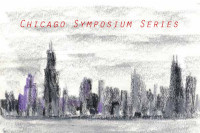Breakout Sessions for Saturday, April 12, 2014
Angela Little, recent PhD graduate from the University of California, Berkeley.
This workshop draws upon lessons learned from the facilitator's experience co-founding The Compass Project. Compass is a program run for students by students. It supports physical science undergraduate and graduate students, particularly from underrepresented backgrounds, at the University of California, Berkeley. One big focus of the program is to support freshman transitioning into the physical sciences at Berkeley. To do this we run a set of programs (a 2-week summer program, a year-long 2-credit course sequence, and a mentoring program) that aim to build a supportive community, introduce students to what's cool about physical science early on, and support students' development of a set of holistic science skills. These skills are in areas such as experimental measurement and model building as well as persistence, self-compassion, and communication.
In this breakout we will focus on one specific design principle of Compass' curriculum: supporting students to feel proud of their work. Our workshop will be interactive and will start with the participants themselves: we will brainstorm a set of examples of thing that we're proud of. We will break into small groups to discuss similarities and differences across examples. From this work we will develop a set of design principles toward creating curriculum that will support our own students in feeling proud. Most of the workshop will be spent in developing these design principles, but the facilitator will also highlight aspects of the wider educational research literature that connect to proudness (e.g. Carol Dweck and Seymour Papert) as well as discussing aspects of Compass' attempts at supporting students in this way.
Tim McCaskey and Luis Nasser, Columbia College Chicago
Engaging students in physics can be a challenge, especially for classes of high school students or nonmajors in college. One popular way to do it is by using film clips to inspire discussion of basic physics concepts. Multiple books (for example, Kakalios's The Physics of Superheroes) list examples of action in film and tie it to physics. At Columbia College Chicago, we engage our film students by combining a similar text with student filmed labs and a final film project. Our session will start by showing how we discuss films (especially newer films like Marvel's The Avengers and Gravity), use Tracker software to analyze motion in our labs, incorporate PERinspired tutorials, and work with students on their film projects.
Session participants will interact with each other by discussing labs we all do in our classrooms that would be amenable to film analysis, identifying interesting film clips, and setting appropriate project goals for different levels of students.
Richard Moog, Franklin & Marshall College
This session will provide a follow-up to the plenary presentation, providing an introduction to how POGIL is implemented in a classroom and how POGIL activities are structured. Examples of POGIL activities from several difference courses and disciplines will be available to show how the approach can be used in different instructional contexts.
Glenn Stevens, Boston University
This breakout session will explore the ideas presented in the plenary talk by inviting the audience to engage personally in the investigation of particular concrete mathematical problems that illustrate these ideas.
Click here for a pdf containing problems discussed in this breakout session.
Victoria M. Larsen and Stanley M. Lo, Northwestern University
This session introduces Bloom's taxonomy as a framework to write problems across STEM disciplines. Bloom's taxonomy is a classification of learning objectives and includes two dimensions: cognitive processes (such as remembering, understanding, applying, analyzing, evaluating, and creating) and knowledge (such as factual, conceptual, procedural, and metacognitive knowledge). We will discuss the differences of these classifications using examples from biology, and participants will collaboratively develop problems in their disciplines using Bloom's taxonomy as a framework. Participants are encouraged to bring their own problems and exam questions for analysis.
John Baldwin, University of Illinois at Chicago; David Jabon and Lynn Narasimhan, DePaul University
The Common Core State Standards, which have been adopted by 44 states, have great importance for college programs for teachers, both in-service and preservice. One of the important features of the new standards is the inclusion of practice standards along with traditional content standards. This session explores the new Standards for Mathematical Practice through activities derived from professional development for secondary teachers undertaken by a consortium of universities through a NSF Math Science Partnership grant. Participants will engage in activities that address the practice standards in a variety of ways and discuss the relevance of these standards for college instruction.
Erica Maslanka, Northwestern University
Attendees will learn about the Gateway Science Workshop program (GSW) and the Academic Mentoring Program (AMP) at Northwestern University. GSW and AMP are both peer-led programs designed to enhance student learning in challenging introductory courses in a broad range of disciplines, including chemistry and math. While both programs provide a student-friendly environment where diverse groups of learners can work together with a peer mentor, GSW and AMP differ significantly in their approach, mentor training, and target student populations.
This session presents an overview, along with goals and structure of each program. The structural differences and student impact will also be highlighted. During this session, the presenters will share their perspectives of and experiences with the programs, as well as the various challenges that have arisen and how those have been addressed. The audience will be invited to join in a discussion about GSW, AMP, and similar programs offered at other campuses.

